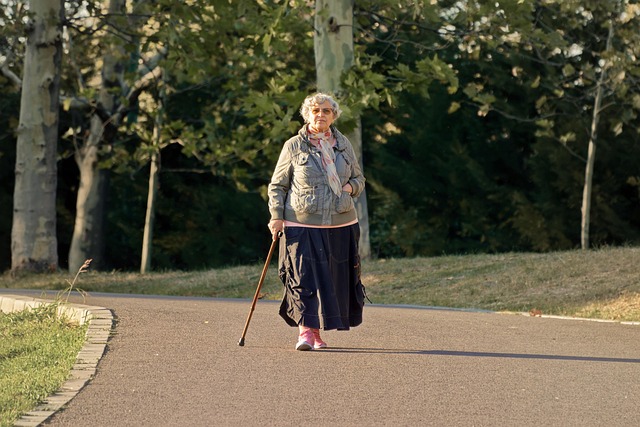Grandparent legal representation navigates complex family law to protect and facilitate grandparent-grandchild relationships, especially during parental breakdowns. It considers relationship quality, parental cooperation, and grandchild well-being, ensuring the best interests are served. Skilled attorneys specialize in family law, keep up with state-specific laws, and understand local court procedures to advocate effectively for grandparent rights, including custody agreements, visitation, adoption, and guardianship. Building a robust case requires gathering detailed evidence and clear narrative support, while legal counsel provides guidance through the process, aiming for favorable outcomes.
“In navigating complex grandparent rights legal matters, understanding the intricate web of laws and their application is paramount. This article guides you through the process, starting with an exploration of the legal framework and basis for grandparent rights. We emphasize the importance of grandparent legal representation in handling intricate cases, highlighting the significance of choosing a qualified attorney specialized in family law and grandparent rights. Additionally, we offer practical strategies to build a robust case, ensuring the best possible outcome for grandparents seeking their rights.”
- Understanding Grandparent Rights: Legal Framework and Basis
- Navigating Complex Cases: When Legal Representation is Crucial
- Choosing the Right Attorney: Expertise in Family Law and Grandparent Rights
- Strategies for Success: Building a Strong Case for Grandparents
Understanding Grandparent Rights: Legal Framework and Basis

Grandparent rights, also known as visitation or custody rights, are a complex legal matter that revolves around the relationship between grandparents and their grandchildren. In many jurisdictions, there is a legal framework in place to protect these rights, ensuring that grandparents have the opportunity to maintain a significant role in their grandchild’s life. This is particularly important when parents’ relationships with their children break down, leading to potential restrictions on grandparent-grandchild interactions.
The basis for grandparent legal representation lies in the concept of family law and the best interests of the child. Courts consider various factors, such as the quality of the grandparent-grandchild relationship, the parent’s willingness to facilitate visitation, and the overall well-being and stability of the grandchild. Grandparent rights advocates or lawyers play a crucial role in navigating these legal matters, ensuring that grandparents’ interests are protected and their relationships with grandchildren are maintained within the boundaries set by law.
Navigating Complex Cases: When Legal Representation is Crucial

Navigating complex grandparent rights cases often requires skilled legal representation due to the intricate nature of family law. These matters can involve a multitude of factors, including custody agreements, visitation rights, and even more nuanced issues like step-parent adoption or third-party guardianship. Legal professionals specializing in these areas possess an in-depth understanding of state laws and their implications, which are frequently subject to change. Their expertise is invaluable when interpreting legal documents, presenting compelling arguments in court, and advocating for the best interests of grandparent–grandchild relationships.
Grandparent legal representation ensures that all aspects of the case are thoroughly examined and addressed. Lawyers can help clients anticipate potential challenges, develop robust strategies, and make informed decisions throughout the legal process. This support is particularly critical when emotions run high during such sensitive cases. Legal representatives provide an objective perspective, guiding their clients through the complexities to achieve favorable outcomes.
Choosing the Right Attorney: Expertise in Family Law and Grandparent Rights

When navigating complex grandparent rights legal matters, selecting the right attorney is paramount. Seek out legal professionals who specialize in family law and have extensive experience handling grandparent legal representation cases. This expertise ensures they understand the intricate details and nuances of these sensitive matters.
Look for attorneys who stay abreast of changing laws and court decisions related to grandparent rights, as this dynamic area of law can vary significantly from state to state. Their familiarity with local family courts and procedures can be invaluable in presenting your case effectively and advocating for the best outcome possible.
Strategies for Success: Building a Strong Case for Grandparents

When navigating complex grandparent rights legal matters, building a strong case is paramount for success. One key strategy involves gathering comprehensive and compelling evidence to support the grandparent’s claims. This may include detailed records of parental actions or inactions, financial documents, medical reports, and witness statements from family members or friends who can attest to the parent-grandparent relationship. Effective communication with legal counsel specializing in grandparent legal representation is essential. These attorneys can guide clients through the legal process, ensuring all necessary documentation is prepared accurately and timely.
Additionally, establishing a clear and compelling narrative is crucial. Grandparents should articulate their role in the child’s life and any barriers created by the parent. Legal representatives can help craft this narrative, highlighting the positive impact grandparents have on the child’s emotional well-being and development. By presenting a unified front with solid evidence and a coherent story, grandparents increase their chances of securing favorable legal outcomes.
